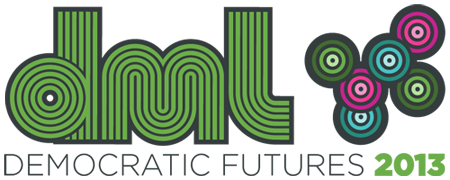TG: Building Civic Cities: The New Urban Mechanics Collaborative as a Model for Scaling Civic Engagement Across Cities
Over the last five years, we have witnessed a groundswell of innovation in the area of civic technology. While new tools and methods are being designed to harness the potential for citizen-led action, many retain the limitations of traditional tools—they were designed for relatively narrow uses and time frames. In this panel, the New Urban Mechanics Collaborative (NUMc) will discuss its efforts to combat this problem and highlight successes in improving, studying, and scaling opportunities for civic engagement through the use of digital games and social media. The NUMc team (built of both academic researchers and government officials) will discuss what it sees as vital approaches and institutional models for civic innovation, present its experiences in fostering relationships among government, communities, and researchers, and demonstrate a handful of its digital tools and ongoing projects.
Building off of the City of Boston’s Mayor’s Office of New Urban Mechanics, NUMc is a national effort to improve civic innovation. Rather than simply focusing on creating new digital tools, NUMc’s unique focus is on creating, strengthening, and reorganizing governments’ partnerships with other institutions such as universities and academic researchers and community organizations. By building a network of organizations and innovators within and between cities, NUMc seeks to reduce the cost and risk of implementing new technologies in the civic space. Additionally, it is a vital step in the effort to move beyond the limitations of traditional outreach efforts, with the lack of connection to local populations, an emphasis on passive participation, and a top-down power structure in which governments provide for rather than collaborate with citizens.
The bulk of this panel will consist of presenting NUMc’s unique organizational structure as a model that achieves three goals: engaging local citizens, cross-city collaboration, and producing informed technologies and policies through rigorous and accessible research. We will describe its arrangement of formal and informal partnerships with other cities (including Philadelphia’s recently-opened Office of New Urban Mechanics), universities across the country (Emerson, Harvard, UPenn, and Stanford), technology groups like Code for America, and local community organizations. After describing the organization of the network, we will present several projects and describe their structure of funding, scaling, and research. NUMc has established a research agenda for its first year that focuses on how using digital civic tools can impact levels of civic engagement, community relationships, and feelings of efficacy and trust. We will discuss the challenges of finding meaningful connections between the process of academic research and the just-in-time service delivery of local government.
We will conclude with a discussion about opportunities and challenges for scaling the network to other cities. We want to use this time to problem solve and generate real, practical solutions for coalition building in this space. By presenting an overview of NUMc’s organization and inviting collaboration, this panel will provide civic innovators with models for approaching these difficult challenges and opportunities for building relationships.



